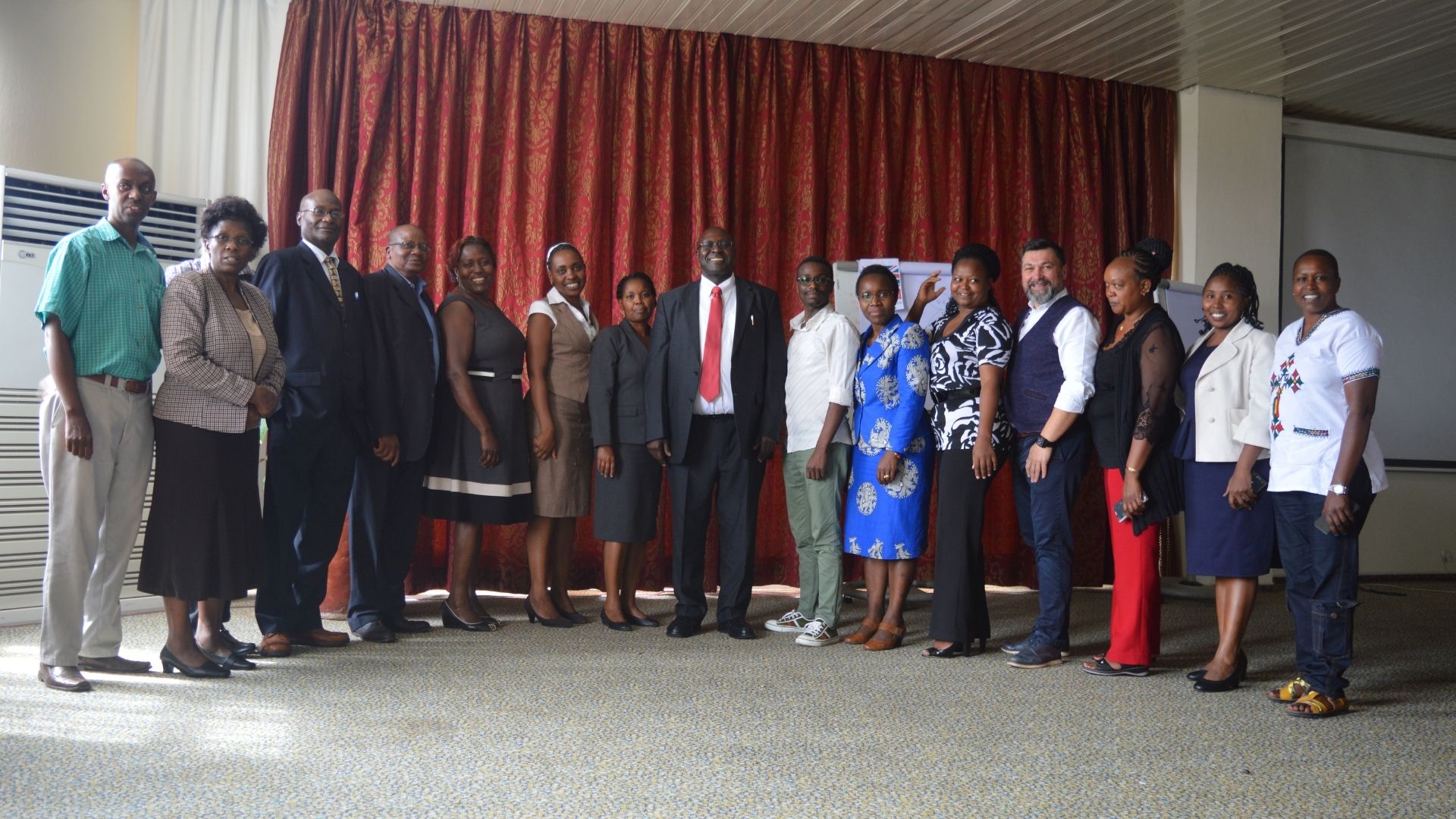Staff at the learning visit to Rwanda, including former staff from Rwanda, David and Otto and visiting Senior government officers from Kenya led by Mr Noah M.O Sanganyi, HSC. Former Director of Children Services.
A return to family and community-based care for Kenyan Children.
The global coronavirus pandemic has had devastating effects for Kenya’s vulnerable families and children. It has resulted in an unprecedented rise in levels of violence against women and children. Much like the virus itself, the pandemic has exacerbated underlying weaknesses in our health, care and support systems.
Conversely however, the pandemic has also exposed the lie that the majority of children in institutions are orphans. Before the start of the pandemic in March 2020, it was estimated that 45,000 children in Kenya were living in orphanages (also known as Charitable Children’s Homes). After the government pronouncement that children should be returned to their families as a measure to control the spread of COVID-19, about half this number were, at a stroke, taken out of orphanages and sent back to their families and communities.
In the years since independence, thousands of children have passed through these orphanages. This system of ‘care’ has unnecessarily separated children from their families, depriving them of family ties and the bonds of community. As a consequence, these children are denied a central part of their development, socialization, identity and belonging. They are denied their right to freely participate in the cultural and traditional life of their communities.
Many children’s homes that purport to provide the basics of food, shelter, health and education, also fall short of doing so adequately. Some studies have shown that children in such environments are six times more susceptible to abuse than their peers living in family environments. Young people who have survived this system are disadvantaged; many have challenges forming healthy relationships, live with mental health issues, suffer stigma and discrimination in communities, and have poor social and life skills amongst other issues. But this hasn’t always been how things are done in Kenya. This practice has been normalised over many years; the past inactions of the government have legitimised family separation and orphanisation.
But it is never too late to start over. A towering figure of freedom and democracy, Nelson Mandela, once said, “One can measure the greatness of a nation and its moral progress by the way it treats its children” and today, we see a new dawn.
We now know as a country that the practices that have failed us, bringing us to this grim state of affairs with the child care and protection system, can’t be the ones to take us forward. This is evidenced by Kenya’s newly launched care reform strategy, which describes a path forward.
It acknowledges our failures, identifies gaps in laws and policies, and guides us on how to escape the rut of orphanages. It lays out a blueprint for how to build a new system that prioritises the prevention of child separation, through support to vulnerable and poor families and communities, who are more at risk of placing their children in institutions.
Together with other actors, Hope and Homes for Children has supported the government of Kenya in envisaging and designing this strategy, aimed at a better future for its children. Prior to the strategy, in 2018, we helped the government see what was possible, by facilitating a benchmarking trip to Rwanda – a country that was rife with orphanages after the genocide, but is now on the verge of eradicating them completely through a care reform process started in 2012, supported by Hope and Homes for Children. We have continued conversations, facilitation and training aimed at improving care and protection; enhancing laws and policies and developing tools and guidelines to make care reform a reality across the region.
We’re delighted about the new dawn and the journey that has brought us to this moment. We hope to continue supporting the government and other stakeholders in their ongoing care reform efforts, whilst acknowledging this is just the beginning. The hardest part is still to come; making a family a reality for all children. We can, and we must, stop the establishment of orphanages, focus our efforts on addressing the root causes of separation, neglect and abandonment and above all, invest in communities and families.
Stephen Ucembe is Regional Advocacy Manager for Hope and Homes for Children in East and Southern Africa. An experienced social worker, he supports our partners in the region to prevent children being confined to institutions and advocates for a model of care that allows children to grow up in families.
